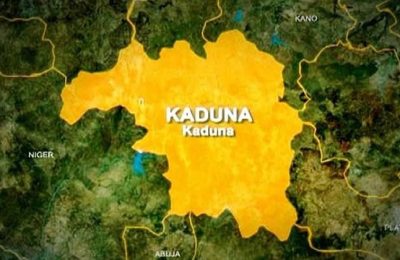Nigeria has said it is putting finishing touches to plans to redefine the term: “out-of-school children”. Our new definition of this concept is targeted at excluding the Almajiri children from out-of-school children, even though they have perennially stuck out like a sore thumb in Nigeria’s education conversations. Nigeria’s Minister of State for Education, Professor Suwaba Saidu, disclosed this while speaking on Prime Time, a programme by Arise Television, recently. Dr Saidu said: “We want to redefine what we mean by out-of-school children because the Almajiri already have a system of education with their teachers and curriculum. By incorporating key components like basic literacy, numeracy, and vocational skills, we can ensure they fit seamlessly into Nigeria’s formal system.”
The minister’s contention sounds beautiful and mellifluous. It fittingly summarises the Roadmap for the Nigerian Education Sector 2020–2027, an idea by the Federal Ministry of Education in its Education for Renewed Hope. When a speech or an idea is such that it is bright and is well-presented, the Yoruba will say one could lick the lips. Let us hope that it is much more than just the beautiful sound from Prof. Saidu because, beyond this explanation, it strangely appears like a desperate bid to divert the focus of the world from the huge problem the almajiri system has become for Nigeria as a nation. Indeed, the submission by Minister Suwaba Saidu comes across like that of someone who has come to deflect the barrage of flak the country has been receiving from observers in the four corners of the globe due to the growing number of children that are wrongly and sadly not in school in the country.
Putting it mildly, the decay and putrefaction which the out-of-school problem has become is quite embarrassing. This is made even more vivid when the data by relevant agencies is considered. The minister admitted that there are various data sources on the number of out-of-school children in Nigeria but she stayed with 15 million. Her figure is not so far away from what Unicef reported in September 2024. It says Nigeria has 18.4 million children of primary school age and junior secondary school age who are out of school. Let’s leave out the 3.4 million children the minister has left out of the loop and assume that they are not there, but like Unicef said, “Nigeria’s education system faces an alarming crisis” and we need much more than redefining out-of-school children to begin to tackle this disaster.
The Ministry of Education has created a roadmap for the Nigerian education sector under the Education for Renewed Hope mantra and what appears like the underlying aim of this roadmap is to change the course of discussion in the out-of-school children conversation in Nigeria. We want to force the figures down without truly solving the main problem that led to the accumulation of the huge figures. We do not want Unicef and the other agencies to keep the alarm howling about the out-of-school children crisis in the country.
It is a very clever initiative by the dons in the Nigerian education sector. However, the roadmap itself spoke to issues of access to education in Nigeria. It says the plan has “to do with enhancing the capacity of Nigeria’s formal and non-formal education systems to provide equitable access to over 90% of out-of-school and school-aged children in basic and senior secondary education.” It also aims at ensuring that 70 percent of eligible youths get “Technical, Vocational Education and Training (TVET) and tertiary education and 75 percent of non-literate adults to non-formal education and lifelong learning opportunities.“ It also acknowledged about “35.7 percent and 33.3 percent shortfall in access to children of school age at the basic, secondary and technical education levels, Nigeria comes up as one of the worst in the world. The situation is similar at the tertiary level with only about 35 percent of those seeking admission being eventually admitted. The focus is therefore to ensure that all children of school age and other Nigerians have unfettered, inclusive access to education from basic to tertiary level.”
Dr. Rabiu Musa Kwankwaso, as governor of Kano State, did his bit to solve or ease the problem of out-of-school children and Almajiri. In 2001, Kwankwaso showed touring journalists the schools he built and also told them the things he had done to ensure that the schools were attractive for the students to stay. Top among the incentives was free food for the pupils.
Kwankwaso got them in with the initiative. It started well and moved really fast. However, a few months after, the boys ceased coming to school to learn. They would rather come to school towards lunchtime and leave shortly afterwards, Kwankwaso lamented. The students would come just to eat and disappear after the food. There was little or nothing Kwankwaso and his team could do to arrest the situation. It stopped going in the desired direction for Kano. The programme failed.
Goodluck Jonathan, as president of Nigeria started a full-fledged programme to cater to nomads and the Almajirai. The former president said his aim was to blend Western education with the Islamic education system to make the out-of-school pupils enjoy learning and thereby arrest festering insecurity. He failed. The programme, despite the determination and verve to see it fly, crashed badly for reasons we had better left as guesses of the observing public.
About eight years later, Buhari’s Minister of Education, Adamu Adamu, said Jonathan’s Almajiri programme failed due to “poor implementation.” Schools were built by Jonathan, sundry incentives were also provided by his government, and experts were deployed who also sought the cooperation of the northern population for its success but Adamu Adamu said it was simply not properly run.
But Adamu knew more than just to dismiss Jonathan’s programme because he said the Buhari government tried to incorporate it into schools. He lamented that some governors in the north would not allow basic education to thrive. “The way our primary schools are, and I would like to say this about governors, especially in the northern states: It is as if they are looking for power to destroy education at the primary school level, except for a few. I don’t think there’s any governor who has any good story to say about primary education and nomadic education. The federal government is only intervening.”
Thus, in the matter of Almajirai and their proper education, Kwankwaso flustered, Jonathan was helped to fail while Buhari simply ignored. Now, Bola Tinubu has come with a plan to give it another definition, armed with a roadmap to galvanise it. Adamu, who served a northern cult figure like Buhari said “unless we have full cooperation from the states, achieving the objectives of nomadic education will take a long time to come. I hope states will change their attitude.” Has Adamu not given out enough as to why we are where we are with Almajirai and out-of-school problems? So, when we are done redefining out-of-school, what would now happen to the children? Would the producers of these children stop producing them, or are we also going to redefine that?
The thought that the Almajirai are not out of school is astonishing. As things stand today, it is very difficult to state the usefulness of the Almajirai type of education to Nigerian society. It goes beyond Mele Kyari just saying he passed through the system. Why have we decided to massage ourselves in the spine on this problem rather than address its roots? It is clearer why Jonathan failed in his attempt to end the regrettable anomaly. At this point, we must descend from this height of self-deceit and adulation, including the “open school scheme to train 500,000 over-age, out-of-school children in basic skills and entrepreneurship education annually and the propositions by states to revitalise Islamic education system towards reabsorbing their quota of out-of-school children. We have perpetually been pampering the social misdemeanor.
Redefining out-of-school children will not solve the problem. Prof. Saidu knows this; she also knows the solution to the problem she is trying to solve, but we are not going to touch that touchy topic. Yet anything other than that is simply turning our back to the suasion of Ayn Rand that “you can ignore reality, but you cannot ignore the consequences of ignoring reality.”
READ ALSO: Tinubu will honour agreements with academic unions — Education Minister







